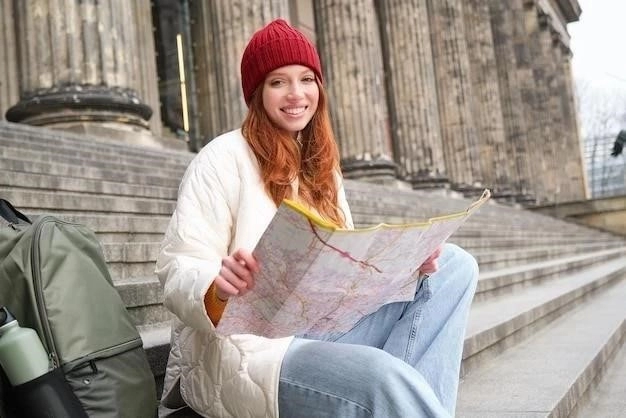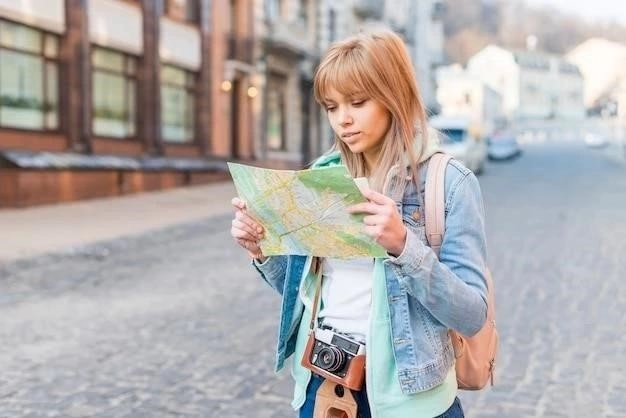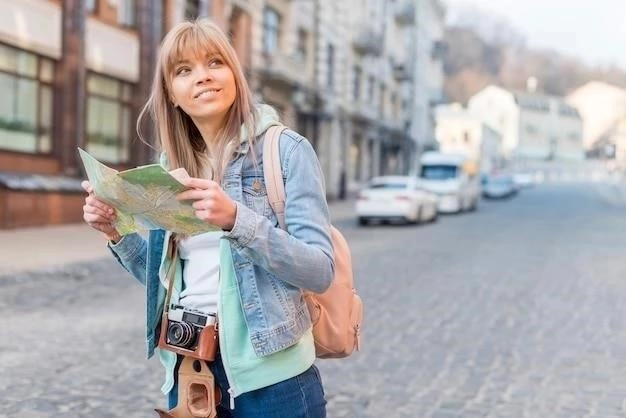Germany Travel Guide
Embark on an unforgettable journey through Germany, a land of rich history, vibrant culture, and breathtaking landscapes. From the historical marvels of Berlin to the Bavarian charm of Munich, Germany offers a diverse range of experiences for every traveler.
Planning Your Trip
A well-structured itinerary is essential for a fulfilling German adventure. Begin by prioritizing your interests, whether they lie in delving into the nation’s profound history, immersing yourself in the cultural tapestry of its cities, or venturing into its scenic landscapes.
For history enthusiasts, consider allocating ample time to explore Berlin’s iconic landmarks, such as the Brandenburg Gate, the Reichstag Building, and the remnants of the Berlin Wall. Munich, steeped in Bavarian heritage, beckons with its opulent palaces, including the Residenz and Nymphenburg Palace, and the historic Marienplatz square.
Art and culture aficionados will find solace in cities like Dresden, renowned for its Zwinger Palace and Semper Opera House, and Leipzig, the former home of Johann Sebastian Bach. Nature lovers should set aside time to traverse the Romantic Rhine Valley, characterized by its vine-clad hills and medieval castles, or to hike amidst the enchanting Black Forest.
Germany boasts an efficient and extensive transportation network, rendering it convenient to navigate between cities and regions. High-speed trains, such as the ICE, provide swift connections, while regional trains offer a more leisurely pace for soaking in the scenic beauty. Car rental is a viable option for those seeking greater flexibility in exploring the countryside.
To ensure a seamless journey, meticulous planning is key. Research visa requirements, book accommodations in advance, especially during peak tourist seasons, and familiarize yourself with local customs and etiquette. A well-planned itinerary will set the stage for an enriching and unforgettable German escapade.
Visa and Entry Requirements
Prior to embarking on your German adventure, it is imperative to ensure compliance with the necessary visa and entry regulations. Citizens of certain countries are eligible to enter Germany visa-free for tourism or business purposes for a limited period. However, it is crucial to verify your specific nationality’s requirements well in advance of your intended travel dates.
Should you require a visa, a comprehensive application process must be undertaken. This typically entails submitting a visa application form, a valid passport with at least six months of remaining validity, recent passport-sized photographs, proof of travel insurance, and documentation substantiating your financial means to support yourself during your stay in Germany. Additional documents, such as a letter of invitation from a host in Germany or a detailed travel itinerary, may be requested depending on the purpose and duration of your visit.
It is highly advisable to initiate the visa application process well in advance of your trip, as processing times can vary. Furthermore, meticulously review the specific requirements and guidelines provided by the German embassy or consulate in your home country to ensure a smooth and hassle-free application process.
Upon arrival in Germany, you will be subject to immigration control, during which you may be asked to present your passport, visa (if applicable), and supporting documents such as your return flight ticket and proof of accommodation. It is essential to cooperate fully with border officials and provide accurate and truthful information.

Best Time to Visit
Germany, with its temperate climate, offers distinct experiences throughout the year, each season painting the country in a different light. The optimal time for your visit hinges largely on your personal preferences and the nature of your desired itinerary.
The shoulder seasons, spring (April-May) and autumn (September-October), present an ideal blend of pleasant weather and manageable crowds. Spring adorns the country in vibrant hues as flowers bloom, while autumn transforms the landscapes into a tapestry of warm, golden tones. Temperatures during these periods are generally mild, making them suitable for outdoor exploration and sightseeing.
Summer (June-August) is peak tourist season in Germany, with warm temperatures and extended daylight hours. This period is ideal for savoring the lively atmosphere of beer gardens, attending outdoor festivals, and indulging in water activities along Germany’s lakes and coastlines. However, expect larger crowds and higher prices for accommodations and flights.
Winter (November-March) blankets the country in a serene beauty, particularly in regions such as the Bavarian Alps. Christmas markets, with their twinkling lights and festive ambiance, are a highlight of the season. While winter temperatures can drop below freezing, cities remain vibrant with indoor activities, museums, and cultural events.
Getting Around
Navigating Germany’s diverse landscapes and bustling cities is an effortless endeavor, thanks to its highly efficient and extensive transportation network. Whether you prefer the convenience of high-speed rail, the scenic routes of regional trains, or the flexibility of self-driving, Germany offers a plethora of options to suit every traveler’s needs.

Germany’s rail network, Deutsche Bahn, is renowned for its punctuality and comfort. High-speed ICE (InterCity Express) trains connect major cities at speeds of up to 300 kilometers per hour, making them an ideal choice for long-distance travel. Regional trains provide a more leisurely pace, meandering through picturesque countryside and offering a glimpse into local life.
For those seeking greater flexibility, car rental is a viable option. Germany’s autobahns, famed for their lack of speed limits on certain sections, allow for swift and efficient travel, while its well-maintained network of smaller roads offers scenic drives through charming villages and rolling hills. However, be aware of traffic regulations, including speed limits in urban areas and on certain sections of the autobahn.
Within cities, public transportation systems are comprehensive and reliable, encompassing buses, trams, subways, and commuter trains. Many cities offer day passes or tourist cards that provide unlimited travel within designated zones. Taxis are readily available but can be expensive, while ride-sharing services offer a convenient alternative.
Accommodation
Germany presents a diverse array of accommodation options, catering to a wide spectrum of preferences and budgets. Whether you seek the opulence of a luxury hotel, the cozy charm of a traditional guesthouse, or the budget-friendly convenience of a hostel, Germany has something to offer every discerning traveler.
Luxury hotels abound in major cities, offering an array of amenities designed to pamper and indulge. From Michelin-starred restaurants and rooftop bars with panoramic city views to state-of-the-art fitness centers and rejuvenating spas, these hotels provide an unparalleled level of comfort and service.
For a more intimate and authentic experience, consider staying in a guesthouse or pension. Often family-run, these establishments exude a warm and welcoming ambiance, providing a glimpse into local hospitality. Many guesthouses serve a hearty breakfast, offering a taste of regional specialties.
Budget-conscious travelers will find a wide selection of hostels available, particularly in popular tourist destinations. Hostels provide dormitory-style accommodation as well as private rooms, often with shared bathroom facilities. They offer a sociable environment, providing opportunities to connect with fellow travelers from around the globe.
When selecting your accommodation, consider factors such as proximity to transportation hubs, attractions, and dining options. Booking in advance is highly recommended, especially during peak tourist seasons, to secure your preferred choice and potentially benefit from more favorable rates.
Must-See Attractions in Germany
Germany, a land of rich history, vibrant culture, and breathtaking landscapes, offers a tapestry of captivating attractions that beckon travelers from far and wide. From iconic landmarks steeped in history to picturesque towns exuding timeless charm, Germany presents a wealth of experiences to satisfy every traveler’s wanderlust.
No trip to Germany is complete without a visit to Berlin, the nation’s dynamic capital. Explore the remnants of the Berlin Wall, a poignant reminder of a divided past, and marvel at the architectural grandeur of the Brandenburg Gate, a symbol of German unity. The Reichstag Building, home to the German Parliament, offers panoramic city views from its iconic glass dome.

Munich, the capital of Bavaria, enchants with its Bavarian charm. Immerse yourself in the city’s rich history at the opulent Residenz Palace, the former royal residence of Bavarian monarchs. Indulge in the lively atmosphere of Marienplatz, the city’s central square, home to the iconic Glockenspiel, a masterpiece of mechanical clockwork.
Beyond the bustling cities, Germany’s natural beauty captivates the soul. The Romantic Rhine Valley, a UNESCO World Heritage site, winds its way through vine-clad hills crowned by medieval castles, creating a scene straight out of a fairytale. Embark on a leisurely cruise along the Rhine, savoring the picturesque vistas and immersing yourself in the region’s legendary lore.
Berlin: History and Culture
Berlin, Germany’s vibrant capital, stands as a testament to the nation’s tumultuous past and its enduring spirit. Once a city divided by ideology, Berlin has emerged as a symbol of unity and progress, its streets echoing with the footsteps of history and its cultural landscape a vibrant tapestry of art, music, and innovation.
Immerse yourself in the city’s poignant history at the East Side Gallery, a preserved section of the Berlin Wall transformed into an open-air art gallery. The Brandenburg Gate, once a symbol of division, now stands as a triumphant archway, representing German reunification. Reflect on the atrocities of the Holocaust at the Memorial to the Murdered Jews of Europe, a sobering reminder of the consequences of intolerance and hatred.
Berlin’s cultural scene is as diverse and dynamic as its history. Experience world-class opera and ballet at the Staatsoper Unter den Linden, or immerse yourself in the city’s thriving theater scene at the Deutsches Theater or the Berliner Ensemble. Explore the city’s rich artistic heritage at Museum Island, home to a cluster of five renowned museums, including the Pergamon Museum, with its impressive collection of ancient artifacts.
Indulge in Berlin’s culinary delights, from traditional German fare to international cuisine. Explore the city’s vibrant nightlife, with its eclectic mix of bars, clubs, and live music venues. Whether you seek to delve into history, immerse yourself in culture, or simply soak up the city’s unique atmosphere, Berlin offers an unforgettable experience.
Munich: Bavarian Charm
Munich, the capital of Bavaria, embodies the heart and soul of southern Germany. With its grand architecture, world-renowned beer gardens, and deep-rooted traditions, Munich offers a captivating blend of history, culture, and Bavarian charm.
At the heart of Munich lies Marienplatz, the city’s central square, dominated by the neo-Gothic splendor of the Neues Rathaus, or New Town Hall. Witness the intricate clockwork spectacle of the Glockenspiel, which comes alive with dancing figures and chiming bells at set times each day. Explore the opulent interiors of the Residenz, the former royal palace of Bavarian monarchs, showcasing a blend of architectural styles and housing a treasure trove of art and artifacts.
No visit to Munich is complete without experiencing its famed beer gardens, an integral part of Bavarian culture. Indulge in a refreshing Maß of local brew at the iconic Hofbräuhaus, one of the world’s most famous beer halls, or find a shady spot under the chestnut trees at the Augustiner-Keller, one of Munich’s oldest beer gardens.
Munich is also a city of art and culture. The Alte Pinakothek houses a world-renowned collection of Old Masters, while the Neue Pinakothek showcases art from the 19th and early 20th centuries. For a glimpse into Bavaria’s scientific and technological prowess, visit the Deutsches Museum, one of the world’s oldest and largest science and technology museums.
The Romantic Rhine Valley
The Rhine Valley, a UNESCO World Heritage site, embodies the quintessential Romantic ideal of Germany—a picturesque landscape of vine-clad hills, medieval castles perched on craggs, and charming villages nestled along the riverbanks. A journey along the Rhine is a journey through history, legend, and breathtaking natural beauty.

Begin your exploration in the town of Koblenz, situated at the confluence of the Rhine and Moselle rivers. Here, the imposing Ehrenbreitstein Fortress stands sentinel atop a hill, offering panoramic views of the valley. Cruise downriver to the town of Rüdesheim am Rhein, renowned for its vineyards and half-timbered houses. Visit the Drosselgasse, a narrow lane lined with traditional taverns, and savor a glass of local Riesling wine.
Further along the Rhine, the legendary Lorelei Rock rises majestically from the river. According to legend, a beautiful maiden, heartbroken by her lover’s betrayal, lured sailors to their deaths with her enchanting song. Today, a statue of the Lorelei stands atop the rock, a reminder of the enduring power of myth and folklore.
For a truly immersive experience, embark on a leisurely river cruise, gliding past vineyards, castles, and charming towns. The Rhine Valley is also a haven for hikers and cyclists, with numerous trails winding through the vineyards and forests, offering breathtaking views at every turn.
The Black Forest
The Black Forest, a mountainous region in southwestern Germany, evokes images of enchanting forests, quaint villages, and traditional cuckoo clocks. With its dense forests, sparkling lakes, and picturesque hiking trails, the Black Forest offers a serene escape from the hustle and bustle of city life.
Embark on a scenic drive along the Black Forest High Road, a winding route that offers breathtaking vistas of rolling hills, dense forests, and charming villages. Visit Triberg, renowned for its cascading waterfalls, the highest in Germany, and its charming shops selling traditional cuckoo clocks, a symbol of the region. Explore the picturesque town of Baden-Baden, a historic spa town known for its thermal baths, elegant casinos, and verdant gardens.

For outdoor enthusiasts, the Black Forest offers a plethora of activities. Hike through the dense forests, following well-marked trails that wind through towering pines and alongside sparkling lakes. Cycle along the numerous bike paths, ranging from leisurely routes through vineyards to challenging mountain passes. In winter, the Black Forest transforms into a winter wonderland, offering opportunities for skiing, snowboarding, and snowshoeing.
Indulge in the culinary delights of the Black Forest, renowned for its hearty cuisine and delectable desserts. Sample the region’s famous Black Forest cake, a decadent treat made with layers of chocolate cake, whipped cream, and cherries. Warm up with a steaming bowl of Black Forest ham stew, a hearty dish perfect for a cold winter’s day.
German Cuisine
German cuisine, often associated with hearty fare and generous portions, offers a delectable journey for the palate. From savory meats and rich sauces to delicate pastries and refreshing beers, German culinary traditions vary significantly across the country’s diverse regions, each boasting its own unique specialties and culinary heritage.
No exploration of German cuisine is complete without indulging in the savory flavors of traditional dishes. Sauerbraten, a pot roast marinated in wine, vinegar, and spices, exemplifies German comfort food, while Schweinshaxe, a roasted pork knuckle, offers a crispy exterior and succulent meat. For a taste of Bavarian cuisine, sample Schweinebraten, roasted pork shoulder often served with dumplings and sauerkraut, or enjoy a hearty bowl of Gulaschsuppe, a rich stew seasoned with paprika and other spices.

Germany’s bakery culture is renowned worldwide. Indulge in the sweetness of a warm Apfelstrudel, a flaky pastry filled with apples, raisins, and cinnamon, or savor the rich flavors of a Black Forest cake, a decadent treat made with layers of chocolate cake, whipped cream, and cherries. No visit to a German bakery is complete without sampling a selection of freshly baked breads, from crusty sourdough to soft and fluffy pretzels.
Budget and Money-Saving Tips
While Germany offers a wealth of experiences for every traveler, exploring this captivating country doesn’t have to come at a premium. With a bit of planning and savvy decision-making, it’s entirely possible to enjoy a memorable German adventure while keeping expenses in check. Here are some practical tips to stretch your budget further:
Consider traveling during the shoulder seasons (spring or autumn) when crowds are thinner and accommodation rates tend to be more favorable. Embrace the efficiency and affordability of Germany’s excellent public transportation system. Purchase a BahnCard for discounted train travel, especially if you plan on multiple journeys.

Take advantage of free activities, such as exploring parks, visiting markets, and attending free concerts or festivals. Many museums offer free admission on certain days or evenings. Pack a reusable water bottle and take advantage of Germany’s excellent tap water to avoid purchasing expensive bottled water.
Indulge in affordable culinary delights by opting for lunch specials at restaurants or trying local street food offerings. Consider self-catering some meals by purchasing groceries at local supermarkets or markets. Embrace the German tradition of “Kaffee und Kuchen,” an afternoon coffee break with a slice of cake, often offered at discounted prices.










